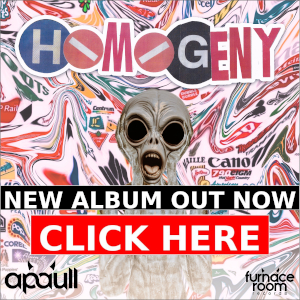Starting something as broad and vast as this will always be a hard, bumpy and evolutionary task with no obvious parameters to work within, but hats off to the Sample Magic and LEME team on very worthy, necessary and sincere debut that has boundless potential from here on. The artists and bedroom producers of 2013 would be wise to pencil it in to their diaries already.
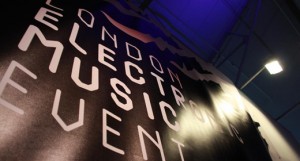 Personally, I blame the Spice Girls. In the early 1990’s “Pop music” was a term for music “popular” enough to find itself in the Top 40. Be that Nirvana through to Take That. They were popular, therefore they were “Pop.” A mere catchment term. It wasn’t really until those five British girls were thrown together amidst whirlwind of carefully targeted merchandising and franchise milking when “pop” truly became its own genre with a specific sound, style, audience and ethos all of its own, and has had a significant impact on the shape of every pop artist since. Quite the reverse could be said for “Electronic music”; a term that’s not had much too worry about over the years when it comes to its identity. Aside from HMV dumping the likes of Boards of Canada next to Basement Jaxx in their “Dance” section, once “Dance” has been removed from the equation its only real identity crisis over the last 20-30 years has been in differentiating “Electronic” from “Electronica” and “Electro” (and maybe “IDM” to lazy overseas journalism). However, with the State’s recent awakening to house music, and the (d)evolution of dubstep being thrust into the mainstream (becoming as “Nu” as Nu-Metal was to Metal-Metal), “Electronic Music” is only now becoming a simple umbrella term for music made electronically. Convenient and logical, perhaps? But the “Electronic music” purists fear Karlheinz Stockhausen may be spinning in his grave when a whole nu-generation’s only “Electronic Music” reference is Skrillex. (See Skrillex’s now infamous Facebook post of Aphex Twin‘s classic “Flim,” only for his fans to simply bawk and winge “Where’s the dropz!?”)
Personally, I blame the Spice Girls. In the early 1990’s “Pop music” was a term for music “popular” enough to find itself in the Top 40. Be that Nirvana through to Take That. They were popular, therefore they were “Pop.” A mere catchment term. It wasn’t really until those five British girls were thrown together amidst whirlwind of carefully targeted merchandising and franchise milking when “pop” truly became its own genre with a specific sound, style, audience and ethos all of its own, and has had a significant impact on the shape of every pop artist since. Quite the reverse could be said for “Electronic music”; a term that’s not had much too worry about over the years when it comes to its identity. Aside from HMV dumping the likes of Boards of Canada next to Basement Jaxx in their “Dance” section, once “Dance” has been removed from the equation its only real identity crisis over the last 20-30 years has been in differentiating “Electronic” from “Electronica” and “Electro” (and maybe “IDM” to lazy overseas journalism). However, with the State’s recent awakening to house music, and the (d)evolution of dubstep being thrust into the mainstream (becoming as “Nu” as Nu-Metal was to Metal-Metal), “Electronic Music” is only now becoming a simple umbrella term for music made electronically. Convenient and logical, perhaps? But the “Electronic music” purists fear Karlheinz Stockhausen may be spinning in his grave when a whole nu-generation’s only “Electronic Music” reference is Skrillex. (See Skrillex’s now infamous Facebook post of Aphex Twin‘s classic “Flim,” only for his fans to simply bawk and winge “Where’s the dropz!?”)
So, when a brand new event for 2012 comes along with such a bold (yet still somewhat vague) name as The London Electronic Music Event (or LEME), it’s difficult to know what to expect. No, it’s not yet another new festival in Victoria Park. But rather a two day residency at a technical music college in North London, offering seminars, master-classes and Q&A’s with some impressive names from all corners of the music industry. Even with a rather sexy marketing campaign, website and impressive line-up of guests, its target audience is still a little unclear. But the apparent treasures on offer are not to be sniffed at, and would appear to offer a much more personal and first hand insight than any quick internet search could for a budding artist, DJ or label. Rather alarmingly resembling a prison from the outside, once we finally found the Alchemea Music College and are unceremoniously buzzed in through a door at the back of a car park, up on the first floor we were greeted warmly and presented with our token welcome packs, detailed schedule and map around the neatly divided floor plan in which the event will be calling home for the weekend. Following a welcoming speech by one of the festival organizers, the grandiosely titled ‘Song writing and producing for the stars’ seminar gets off to a slightly false start.
Interview with Co-Organiser Barry McManus
Perhaps a little under-prepared or maybe a little nervous, producer Dominic Betmead (aka Dom Search of production duo The Nextmen) spent the opening 10 minutes listing his accomplishments loaded with plenty of name-drops (not helped by projections of his studio with the occasional photo of him and Ms. Dynamite thrown in for good measure) So it was a little disappointing for his next words to be “So, any questions?” After a slightly awkward silence, it was clear that what few questions the audience had to ask were mostly based on production. Admittedly, Betmead was obviously discussing being a gun for hire, but had very few set rules to follow. After a bit of digging to get to the nice guy behind the CV, a young, attractive female session singer raised her hand mid way through. After confessing her complete naivety to any kind of software beyond her internet browser, she asked for suggestions on how to record affordable, decent demos at home to send to producers. Although sincere in his answers, it’s not insulting to presume that the subsequent list of gear and software he reeled off went largely over her head. More tales of working with Plan B and lots of “Well, it depends..” aside, things start to pick up when asked for examples of which tunes would be good to A/B your work against. “Well I love this Photek track, but it sounds like nothing else” isn’t perhaps the answer they were looking for, and actually playing comparisons in the class would have at least helped. But at least the example was more relatable than just his experience in the studio with Plan B or Ms Dynamite. As insightful, pleasant and impressive as some of the tales were, ultimately all we learned was how a producer with nearly 15 professional years experience would go about working on Plan B’s debut album, rather than how we’d go about song-writing or producing for ourselves.
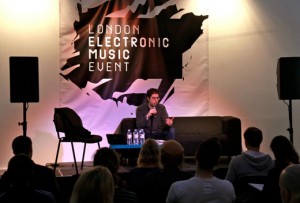
Moving in to the main hall for our second session (Ten Things to look for in a Record Contract), a comfortable black sofa in front of a giant banner on the main stage was to play host to our next guest speaker; veteran entertainment lawyer Richard Salmon. Without sound too pessimistic, the likelihood of many of the halls guests ever having opportunity to pour over a major label contract for themselves is perhaps rather slim (mainly because modern dance/electronic music tends to work on a much smaller or independent scale). But over the next 90 minutes, Mr Salmon thoroughly dissected the ins and outs of a major label contract, and ensured all i’s were dotted and t’s were crossed when answering the audiences questions; ranging dramatically from explaining exactly what Mechanical Royalites are, through to where an independent artist stands when it comes to their work being pirated. While the scope and standpoint of his session was as intimidatingly top-end as it could possibly get, and his session in desperate need of at least a power point presentation to add a little more energy, the information provided was truly invaluable, and backed up with plenty of digestible examples and detailed experience that you simply can’t just Google.
Meanwhile in the noisy small computer lab pulsing out basslines through the wall over Richard Salmon, LEME was offering one of its numerous software tutorials of the weekend, which ranged from a Reason 6 masterclass to Mix Bus Processing. Here, Kick & Bass: A pivotal relationship is indeed vital to most production, but it’s fair to say that the majority of what the session contained (use of side chaining, choice of sounds, layering samples) was pretty basic stuff. While it was useful to see it done, there was little that one could take away. Some weren’t at this stage yet and were probably wanting specific guidance with particular programs—one person asked for an explanation of what the different EQ types were, while others were somewhat predicting the lecturers responses. There was a lot more structure here though, and some did indeed take away a few useful tips. But it was another indication a lot of attendees weren’t necessarily suited to the lectures.
For our third session after lunch we were back in the main room and in the company of Nathan Taylor (former A&R for EMI, and previous manager of their dance imprint, Positiva) who was here to discuss Working the blogs / The PR Machine. Now a senior PR and Marketeer of the hugely successful Anorak London PR company, Nathan’s sincere and humble approach to the changes in the industry and painstaking patience one needs to deal with an over-saturated online market really struck a chord with the packed room. While he may have talked Anorak out of a few potential future clients by essentially spelling out exactly what he does for his roster and how we can do it ourselves, for the first time that day LEME finally felt relatable to everyone, whether they be a dubstep producer, house DJ or budding IDM promoter. While this information was undoubtedly useful, an inescapable niggle appeared that clearly applied to many, but no speaker was upfront enough to say out right; if you’re needing advice on kick/bass work, then your tunes really aren’t ready to send off to even small blogs, never mind Pitchfork etc. Likewise to Richard Salmon’s discussions—very interesting, very useful, but for the most part only really of note to people whose tunes are already getting released or have been recognised as decent. Yes, we can contact ad agencies and games companies to see if we can get some work, but not likely if we’re still needing advice in how to use Reason—that’s only realistically going to work for someone whose tunes are of a professional standard.
First day impressions were mixed. At times a little unsure of itself as an event and who it was actually talking too, and at others practically oozing with gold dust. The surprising lack of actual music, prepared examples by the speakers and overall need for a bit of oomph and pizazz at times risked draining the excitement out of the music, or deflating enthusiasm with too much cold, hard industry reality. However, while the technical college environment might have been holding LEMEs grand opening ambitions back slightly, the gems that were picked up and the juicy line-up for the following day were enough to the keep anticipation flowing.
With a better understanding as to what to expect, Sunday got off to a flying start. Hosted by the infectiously enthusiastic Hal Ritson (Producer, Musician and owner of Mofohifi Records) our first session entitled Taking Dance Music Live was quickly retitled Taking ‘Electronic’ music live. A small gesture, perhaps—but an extremely welcome one, as finally the polar opposite differences between the many genres under the “Electronic Music” umbrella, and their distinct individual requirements and rights were being properly acknowledged. Having established himself as a leading musical director and producer for various live tours, festivals and events (including Dizzee Rascal‘s memorable and brilliant full band & orchestra reinvention for the BBC Electric Proms) Ritson dissected and analysed every possible live scenario he had personally experienced; ranging from how to make a simple one-man laptop set in local pub more entertaining, through to the nightmare logistics of packing down and transporting a full ensemble live set over an international tour. Clearly the talented performer, whether it be suggestions on how to simply add a bit of showmanship into twiddling knobs on stage, or what software can trigger bespoke stage visuals while live mixing, Ritson proved to be a show-stealer in a seminar as well as on a stage, while at all times sincere, genuine and empathic to his audience.
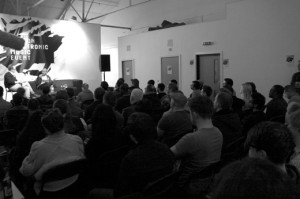
Session two started with a more traditional power-point presented analysis on Identity & Branding 101. With little information on the schedule as to what this would actually entail, the presentation and Q&A that followed with designer and director of IWANT Designs, John Gilsenan, was a creative addition to the weekend. Focusing on everything from logo design, packaging and brand identity, Gilsenan’s balance of creative enthusiasm and keeping a level business head and tight eye on practicalities and budgets was another welcome olive branch between the event and its audience, and a real indulgence for electronic music fans of all sub genres who all seem to have a unanimous appreciation/fetish for gorgeous packaging and branding. Surprisingly, Soundcloud‘s VP of business development, Dave Haynes wasn’t as successful at helping the audience build a bridge between themselves and the digital world. Deciding to use the third session of as more of a sales pitch for Soundcloud’s premium accounts, Getting more from Soundcloud essentially boiled down to simply Paying more for Soundcloud.
Soundcloud’s impact on the distribution of your average unsigned musician’s catalog has been impressive and almost mandatory since the demise of MySpace, but it’s by no means a perfect format. Still bugged with lots of niggles that the audience were keen to address, Haynes responded swiftly with some well rehearsed scapegoat solutions (ie: Soundcloud not allowing users to re-order their uploads. But wouldn’t you know it… a premium account has a new “spotlight” feature that old tracks can be bumped up the page with. How generous. Or a clearer and simpler method of disabling annoying user comments that prevent you skimming through a track, which was rebuffed with another explanation of the current, tedious method of disabling them.) Despite his squirms at such questions, all that really prevailed were demonstrations of Soundcloud’s over the top endeavours to cover every possible means of syncing profiles with the entire social networking universe, rarely with little more than pointless novelty “MySpace” effect. While Soundcloud are still unrivaled at what they provide, this unfortunately was not what the audience were hoping for, or perhaps even what you suspect LEME booked them for. We still love you Soundcloud. But they would do well to actually listen to the general peeves of their users and perfecting the platform we all know and love, before trying to thrust shiny new ones in our faces that we didn’t know we “needed.”
With day two so far being both encouraging, fascinating, invaluable and spiced up with a touch of spirited debate, the much anticipated Conversation with Ben Watts (one half of Everything But The Girl and head of his own Buzzin’ Fly dance label) tied the entire weekend together flawlessly. Other than a seemingly decent, down to earth guy who provided lots of juicy insight in to the entire history of his life and many guises within the industry, the Conversation between Ben and one of the organizers seemed cleverly orchestrated to cover all the topics that had been featured throughout the weekend. Once heard applied to one person’s life and career (from handling long-standing relationships with labels and International gigging/DJing, through to marketing a limited edition vinyl pressing and running your own small club night) any gaps or omissions from over the weekend were cleverly glue together through Ben’s colourful examples. Following an amusing and sincere Q&A, in which Ben further helped stitch together a weekends worth of notes, the event adjourned itself to a nearby pub to continue the open panel with Ben. While suspicions that the college just wanted to lock up and go home is what prompted this swift exit, it was the social and friendly boost that was needed for what had been an slightly regimented weekend.
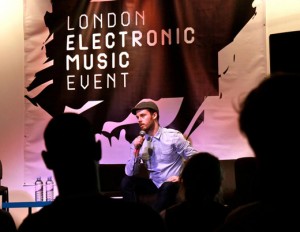
While the first annual LEME wasn’t perfect, its flaws were only down to its infancy, slight lack of confidence and restrictions on its format and shape. £140 for two days in a slightly sterile, quiet and grey technical college which only stretched as far as free tea and biscuits might not have been much of a “music event” on paper, but there was no denying that £140 is nothing for two days of utterly enlightening insight, conversation, information and first-hand experience from some leading industry players. Despite its status as a pioneering figure in music over the years, London has desperately lacked a genuine connection and support network between its industry and the next generation. While Europe has Sónar and The Amsterdam Dance Event proudly turning a blinding electronic music festival into valuable networking opportunities, if the London Electronic Music Event can fine-tune its focus between the vast genres within electronic music, highlight a few more practical ways of uniting the industry with the unsigned, and simply put a little more actual music and “event” into its weekend then, sweet Jesus… where the hell have you been all our digital lives?
Starting something as broad and vast as this will always be a hard, bumpy and evolutionary task with no obvious parameters to work within, but hats off to the Sample Magic and LEME team on very worthy, necessary and sincere debut that has boundless potential from here on. The artists and bedroom producers of 2013 would be wise to pencil it in to their diaries already.
*Written by Léigh Bartlam with contributions from Malcolm Chalmers. Pictures copyright LEME.






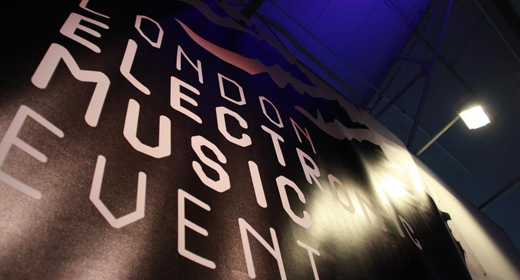






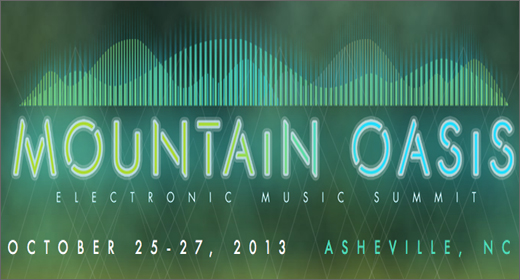




![Luke’s Anger :: Ceiling Walker EP (Love Love) — [concise]](https://igloomag.com/wp/wp-content/uploads/2025/04/lukes-anger-ceiling-walker-vinyl_feat-75x75.jpg)

![Ndorfik & madebyitself :: Solos EP (People Can Listen) — [concise]](https://igloomag.com/wp/wp-content/uploads/2025/04/ndorfik-madebyitself-solos_feat-75x75.jpg)




